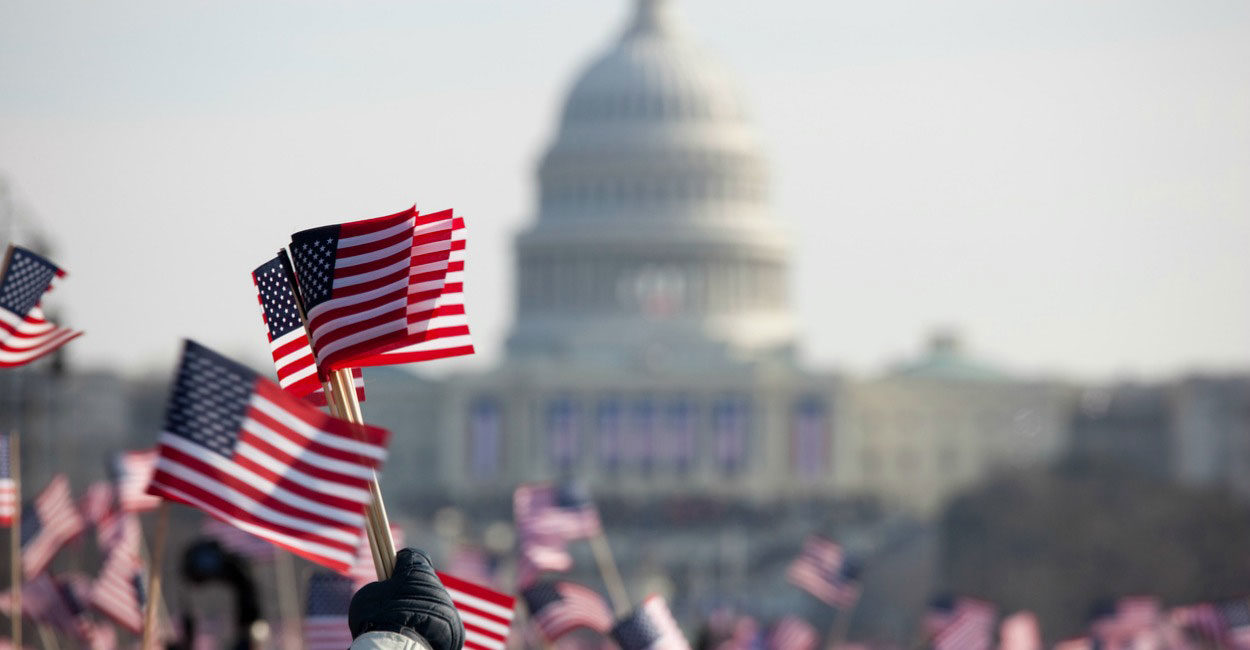Sen. Mike Lee /

Americans are bitterly divided, but they are also united in their distrust of politicians. (Photo: iStock Photos)
Conventional wisdom holds that the great malady plaguing American
life today is the toxic combination of political polarization and
social fragmentation.
And there’s a great deal of truth to this diagnosis. We are, as one astute observer put it, a “fractured republic,” fraught with intense divisions and deep anxieties that are not easily resolved.
But I believe our polarization is merely a symptom of a far deeper problem in America today—a problem that actually unites us, more than it divides us.
Ask the American people to share their opinions on a particular public policy—be it immigration, health care, same-sex marriage, or any hotly contested issue—and you’ll likely receive a wide variety of responses. These are our dividing lines.
But ask them whether they think their opinions actually matter to
those charged with making policy—ask them whether their elected
representatives truly represent their interests—and the public is
suddenly unified.
A recent public poll found that three-quarters of Americans believe most elected government officials “don’t care what people like me think.”
What do they care about? Catering to the narrow agendas of the powerful and well-connected, according to the same supermajority of respondents, who said the federal government is “run by a few big interests” rather than “for the benefit of all the people.”
The American people know they are no longer in charge of their government. They know each year their elected representatives in Washington grow increasingly indifferent, if not downright hostile, to their interests and concerns.
And they know—thanks to last year’s election—that they no longer have to tolerate a political establishment committed to taking power away from the people, first by pulling it up away from states and localities and toward the federal government, and then by consolidating it in the hands of Washington’s unelected bureaucrats.
This drive toward centralization of policymaking power is rooted in an unspoken distrust of the American people’s capacity to govern themselves. But the history of America, and the principles of the Republican Party, prove this distrust to be utterly unfounded.
As Abraham Lincoln—America’s first Republican president—put it in his first inaugural address: “Why should there not be patient confidence in the ultimate justice of the people? Is there any better or equal hope in the world?”
On the eve of America’s Civil War, Lincoln placed his trust—and his hope for a brighter future—squarely on the side of the people. As we seek to heal the wounds of division in our own day, we should follow his lead.
Winning back the people’s trust must be the primary goal of the Republican Party as we assume unified control over Congress and the presidency, and there’s only one way to accomplish it: by putting our trust back in the people.
And there’s a great deal of truth to this diagnosis. We are, as one astute observer put it, a “fractured republic,” fraught with intense divisions and deep anxieties that are not easily resolved.
But I believe our polarization is merely a symptom of a far deeper problem in America today—a problem that actually unites us, more than it divides us.
Ask the American people to share their opinions on a particular public policy—be it immigration, health care, same-sex marriage, or any hotly contested issue—and you’ll likely receive a wide variety of responses. These are our dividing lines.
A recent public poll found that three-quarters of Americans believe most elected government officials “don’t care what people like me think.”
What do they care about? Catering to the narrow agendas of the powerful and well-connected, according to the same supermajority of respondents, who said the federal government is “run by a few big interests” rather than “for the benefit of all the people.”
The American people know they are no longer in charge of their government. They know each year their elected representatives in Washington grow increasingly indifferent, if not downright hostile, to their interests and concerns.
And they know—thanks to last year’s election—that they no longer have to tolerate a political establishment committed to taking power away from the people, first by pulling it up away from states and localities and toward the federal government, and then by consolidating it in the hands of Washington’s unelected bureaucrats.
This drive toward centralization of policymaking power is rooted in an unspoken distrust of the American people’s capacity to govern themselves. But the history of America, and the principles of the Republican Party, prove this distrust to be utterly unfounded.
As Abraham Lincoln—America’s first Republican president—put it in his first inaugural address: “Why should there not be patient confidence in the ultimate justice of the people? Is there any better or equal hope in the world?”
On the eve of America’s Civil War, Lincoln placed his trust—and his hope for a brighter future—squarely on the side of the people. As we seek to heal the wounds of division in our own day, we should follow his lead.
Winning back the people’s trust must be the primary goal of the Republican Party as we assume unified control over Congress and the presidency, and there’s only one way to accomplish it: by putting our trust back in the people.
No comments:
Post a Comment